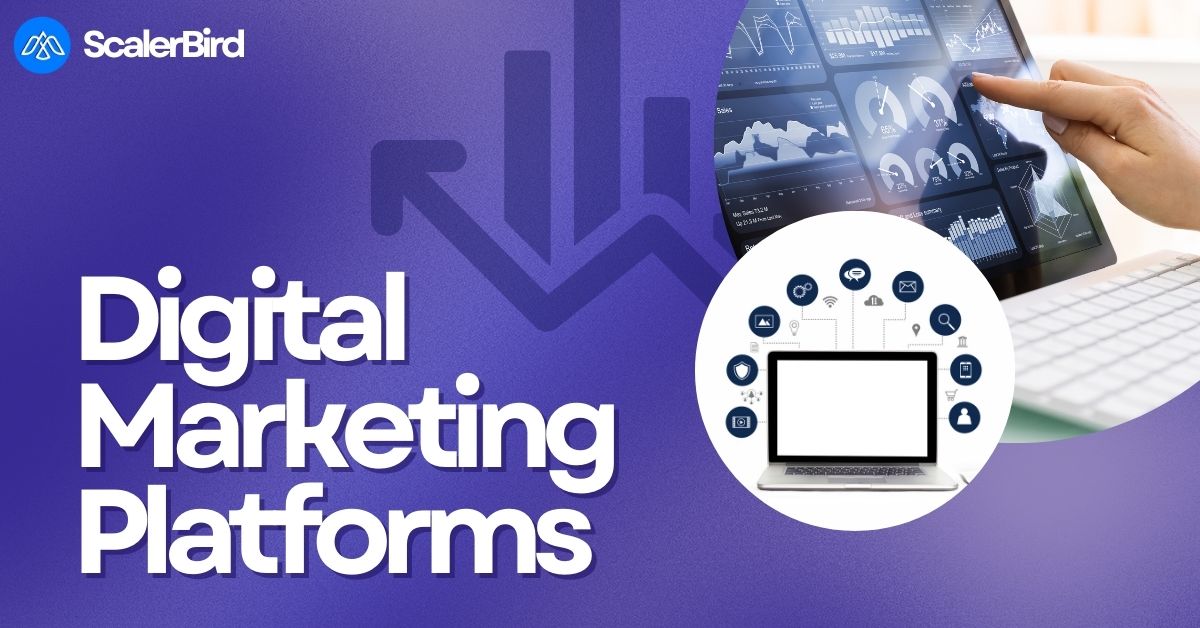In today’s fast-paced digital world, businesses must leverage various digital marketing platforms to stay competitive and grow. This comprehensive guide will explore how leading platforms like Facebook, Instagram, Twitter, and LinkedIn can help businesses thrive in the digital space.
Introduction
Digital marketing platforms are essential tools for businesses looking to establish a robust online presence. These platforms offer unique opportunities to engage with customers, build brand awareness, and drive sales. In this article, we will delve into the benefits of using Facebook, Instagram, Twitter, and LinkedIn for digital marketing, providing insights on how each platform can contribute to business growth.
Facebook: The Giant of Digital Marketing Platforms
Facebook remains a cornerstone in the realm of digital marketing platforms. With over 2.8 billion monthly active users, it offers unparalleled reach and engagement opportunities for businesses.
1. Facebook’s Advertising Power
Facebook’s sophisticated advertising tools allow businesses to target specific demographics, interests, and behaviors. This precision targeting ensures that marketing efforts are directed towards the most relevant audiences, maximizing return on investment (ROI).
2. Building Brand Communities
Creating and managing Facebook groups can foster a sense of community around your brand. These groups provide a space for customers to share experiences, ask questions, and engage directly with the brand, enhancing loyalty and customer retention.
3. Utilizing Facebook Insights
Facebook Insights is a powerful analytics tool that helps businesses understand how their content is performing. By analyzing metrics such as reach, engagement, and conversion rates, businesses can refine their strategies to improve results.
Also Read: Ultimate Digital Marketing Guide for Beginners
Instagram: Visual Storytelling at Its Best
Instagram is a visually-driven platform that has quickly become a favorite among digital marketing platforms. With over 1 billion active users, it offers a unique space for brands to connect with audiences through compelling visuals.
1. Leveraging Instagram Stories
Instagram Stories are a fantastic way to engage with followers through short, impactful content. Businesses can use Stories to showcase behind-the-scenes footage, promote limited-time offers, or share customer testimonials, creating a more personal connection with their audience.
2. Influencer Collaborations
Partnering with influencers on Instagram can significantly boost brand visibility and credibility. Influencers have dedicated followings that trust their recommendations, making them valuable partners in spreading brand awareness.
3. Instagram Shopping Features
Instagram’s shopping features allow businesses to tag products in their posts, making it easy for users to purchase directly from the app. This seamless shopping experience can drive sales and improve the overall customer journey.
Twitter: Real-Time Engagement
Twitter stands out among digital marketing platforms for its real-time communication capabilities. With 330 million active users, it’s an ideal platform for brands to engage in conversations and stay relevant.
1. Twitter Chats and Hashtags
Participating in Twitter chats and using relevant hashtags can increase a brand’s visibility and engagement. These features allow businesses to join trending conversations and reach wider audiences.
2. Customer Service Channel
Twitter is an excellent platform for providing customer service. Brands can quickly address customer inquiries and complaints, showcasing their commitment to customer satisfaction and building trust.
3. Twitter Ads
Twitter Ads enable businesses to promote tweets, accounts, or trends. These ads can target specific demographics, ensuring that marketing messages reach the right audience.
LinkedIn: The Professional Network
LinkedIn is the go-to platform for B2B marketing. With over 774 million members, it provides a professional environment for brands to connect with industry peers, thought leaders, and potential clients.
1. LinkedIn Content Marketing
Sharing valuable content on LinkedIn can establish a brand as an industry authority. Articles, whitepapers, and case studies are particularly effective in demonstrating expertise and building credibility.
2. LinkedIn Ads and Sponsored Content
LinkedIn’s advertising options include Sponsored Content, Sponsored InMail, and Text Ads. These tools help businesses reach a professional audience with tailored messages, driving high-quality leads.
3. Networking and Relationship Building
LinkedIn is ideal for networking and building professional relationships. By engaging with connections and participating in groups, businesses can expand their network and foster valuable industry relationships.
Also Read: Unlock Your Business Potential with Our Website and App Development Company
Conclusion
Digital marketing platforms like Facebook, Instagram, Twitter, and LinkedIn are indispensable for businesses aiming to grow in the digital space. Each platform offers unique advantages and tools that, when used effectively, can drive engagement, increase brand awareness, and boost sales. By leveraging these platforms strategically, businesses can establish a strong online presence and achieve their marketing goals.
